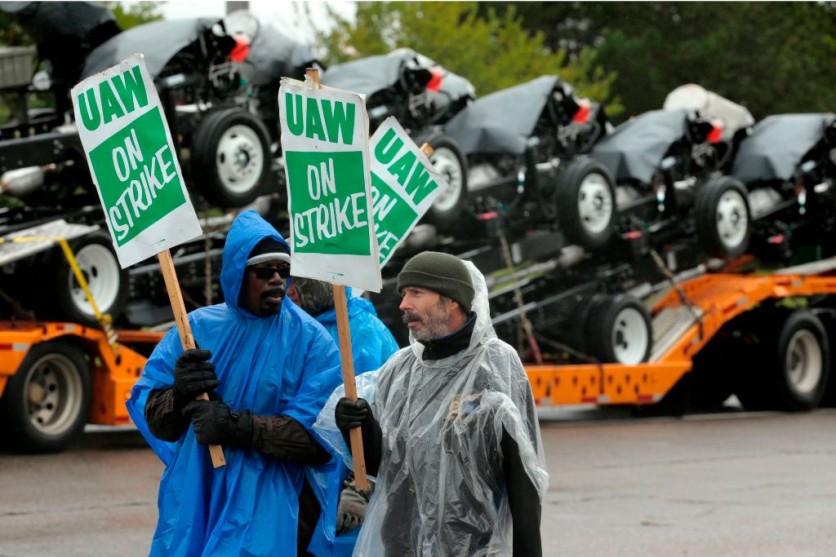The United Auto Workers union (UAW) has proceeded with its plans to hold simultaneous strikes against major automakers Ford, General Motors, and Stellantis after negotiations failed to yield an agreement.
According to TechCrunch, both parties had until Thursday night to come up with a resolution. But with no deal in sight, UAW mobilized its 150,000 members to initiate strikes at various plants nationwide.
Union members rallied with picket lines and signs as the clock struck midnight. The first plants affected are GM's truck and van plant in Wentzville, Missouri; Stellantis' Jeep Wrangler and Gladiator plant in Toledo, Ohio; and Ford's Ranger pickup and Bronco SUV in Wayne, Michigan.
These strikes will impact a total of 12,700 workers: 3,600 at GM, 3,300 at Ford, and 5,800 at Stellantis. It is reportedly the first time in the union's history that it has struck all three US unionized automakers simultaneously.

'Stand Up Strike' Against Ford, General Motors, and Stellantis
Described as a "stand up strike," this tactic aims to keep companies guessing, relying on discipline, organization, and creativity.
According to UAW, this approach mirrors the sit-down strikes of the 1930s and is a response to the pressing need to advocate for the working class and communities against unbridled corporate interests.
According to the Anderson Economic Group, the strike is anticipated to cause significant economic disruption, potentially resulting in an economic loss of over $5 billion if it extends for 10 days. This action may also lead to higher car prices in the future.
In a statement, Ford noted that it had presented four proposals to UAW since August 29, with its latest offer including a 20% wage increase, cost of living adjustments, increased paid time off, and additional retirement contributions.
However, according to Ford, the UAW's counterproposal "tonight showed little movement from the union's initial demands" submitted on August 3.
"If implemented, the proposal would more than double Ford's current UAW-related labor costs, which are already significantly higher than the labor costs of Tesla, Toyota and other foreign-owned automakers in the United States that utilize non-union-represented labor," the company noted.
With the automotive industry's transition to electric vehicles, established automakers are grappling to remain profitable while competing with non-unionized companies like Tesla.
General Motors expressed disappointment in the UAW's decision but affirmed its commitment to continuing negotiations for a swift resolution. Stellantis, on the other hand, stated it had initiated contingency measures but did not specify further.
Read Also : IAA Mobility 2023: Electrification Takes Spotlight at Munich Car Show With BMW, Mercedes, Chinese Automakers
The UAW's Demands
The UAW's demands include the elimination of wage tiers, significant double-digit pay raises, a shortened 32-hour workweek with no decrease in pay, and the reinstatement of cost of living adjustments.
The union is also pushing for profit sharing that provides workers $2 for every $1 million spent on certain company activities.
The three automakers have made counteroffers that the UAW deems unsatisfactory, leading to this widespread strike action. The UAW also seeks greater job security, work-life balance improvements, and increased support for retirees, among other demands.
Senator Bernie Sanders has voiced support for the UAW, emphasizing the stark contrast in how the pandemic affected different segments of society.
He highlighted the immense wealth accumulation by the top echelon during the pandemic and expressed solidarity with the UAW's mission to rectify economic disparities.
Related Article : General Motors, Google Cloud Expand Partnership to Bring AI Tech Into Millions of Automaker's Vehicles

![Apple Watch Series 10 [GPS 42mm]](https://d.techtimes.com/en/full/453899/apple-watch-series-10-gps-42mm.jpg?w=184&h=103&f=9fb3c2ea2db928c663d1d2eadbcb3e52)



